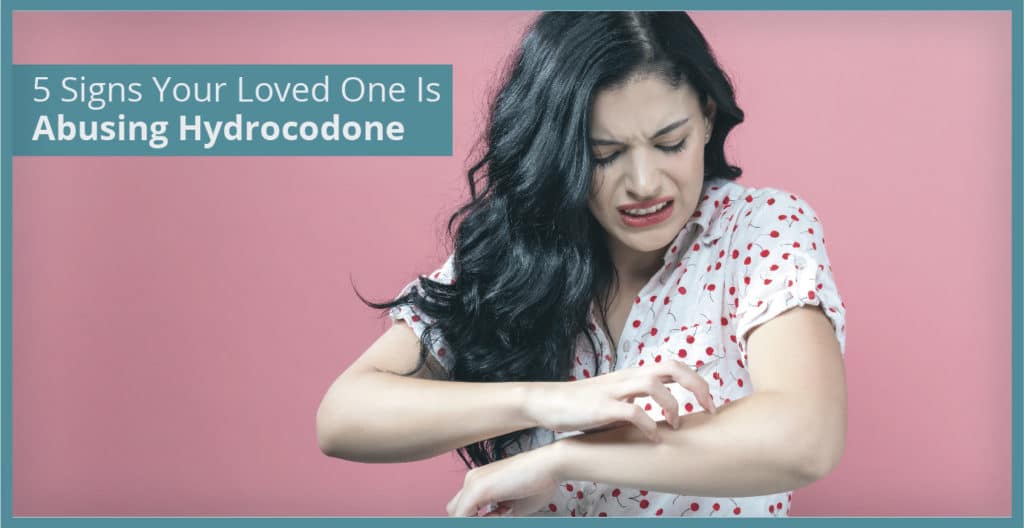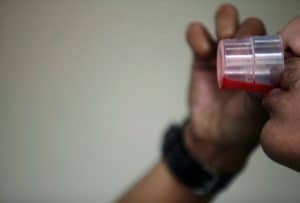Developing an addiction to hydrocodone can start slowly but will soon affect a person’s health and lifestyle. An addiction to hydrocodone often comes with several noticeable signs and symptoms. If you notice any of these signs, The Bluffs can help you identify the problem and receive treatment for your loved one.
5 Signs Your Loved One Is Using Hydrocodone
Hydrocodone is an opioid painkiller, similar to codeine, oxycodone, and morphine. It is a powerful narcotic that is used to treat moderate to severe pain. Hydrocodone can be so addictive that it is classified as a Schedule II narcotic. A Schedule II narcotic is a drug that has a high potential for use and can cause both physical and psychological dependence. Hydrocodone use and use can quickly escalate to addiction. It is a powerful drug that can have physical, mental, and emotional consequences when used. This drug is usually prescribed to help people cope with pain symptoms, and when the pain tapers away, sometimes addiction to hydrocodone remains. If you believe a loved one is abusing hydrocodone, knowing the signs of use can help you determine if your loved one needs professional treatment. The sooner you can begin treatment for hydrocodone use, the easier it is to recover. The following are five signs that may indicate your loved one is abusing hydrocodone:
1. Changes In Behavior
If you’re in a relationship with someone taking hydrocodone, then take note of the subtle changes in behavior. At first, you may notice that your loved one is in an excellent mood. Hydrocodone can provide euphoria followed by an abnormally cheerful mood. use of hydrocodone can also have the opposite effect, and these “happy” symptoms can suddenly morph into anxiety or distress over inconsequential, mundane things. Set a baseline and determine how your loved one regularly behaves. If anything seems out of the ordinary, ask yourself if this is normal behavior or if something seems “off.”
2. Physical Signs Of use
Besides the visible changes in behavior, physical signs of use will begin to emerge when a loved one takes more hydrocodone than a doctor recommends. Physical symptoms may include the following:
- nausea and vomiting
- pupil constriction
- constant itching
- rashes
- dizziness or lightheadedness
- dry throat/coughing
You may also mistake some of these physical symptoms for withdrawal symptoms. If you notice your loved one has insomnia, muscle aches, restlessness, cramping, or diarrhea, they may be experiencing withdrawal symptoms. Withdrawal from hydrocodone can be somewhat painful, and if you notice any of these withdrawal symptoms, see if you can guide them into a treatment center immediately. Treatment centers like The Bluffs, are set up to make the withdrawal process as painless as possible. These centers have the proper tools and support to assist a person through the withdrawal and detox process.
3. Securing Hydrocodone Without A Prescription
Since hydrocodone is a Schedule II narcotic, it is a prescription that doctors try not to prescribe for long-term usage. When prescribed, a doctor will try to gradually decrease the amount of hydrocodone taken to reduce the probability of addiction. Usually, hydrocodone can only be prescribed a limited amount of times. For people who become addicted to the drug, the end of a prescription can cause panic and distress. Once a prescription ends, people may find other illegal means to obtain the drug such as:
- asking or taking friends and families hydrocodone prescriptions
- “doctor shopping” for additional prescriptions
- buying Hydrocodone off the street
- securing opiates through illegitimate online websites
Unfortunately, buying hydrocodone off the streets and through unregistered sellers means there is no telling if what you are purchasing is hydrocodone. Drugs that were not prescribed and distributed through a pharmacy come with no guarantee that they are pure. These types of drugs could be laced with something deadly like Fentanyl or other household poisons that are used as “pill-fillers.”
4. Rapid Lifestyle Changes
Within our relationships, we often begin to settle into a routine. Unfortunately, the introduction of hydrocodone can often change up these patterns. If you notice that your loved one is cutting out of work, school, and previous family commitments mark this behavior as a red flag. These behavior changes can stem from their use of hydrocodone. Their use of hydrocodone has come to the forefront of their minds, and getting their next pill or high may take precedence over anything was once important. Habits and daily activities become less important once a person becomes addicted to opioids.
5. Mixing With Other Drugs
It is strongly recommended not to mix hydrocodone with any other drugs. However, many people ignore this warning. They continue to combine hydrocodone with other drugs. This has the potential to be very dangerous. Combining multiple drugs may contribute to masking or increasing the adverse side effects of all drugs taken. Users begin to crave stronger highs. When they raise their hydrocodone amount and mix it with other drugs, the consequences could be deadly. Not only does the mixing of hydrocodone and drugs create short-term hazards, but it can also have long-term complications for both physical abilities and mental functions. If you notice your loved one is taking hydrocodone and even mixing it with alcohol or other substances you should seek help immediately. Drugs such as these are not meant to take with other drugs, and the complications and side effects of every substance ingested can cause serious harm if not stopped immediately.
Reflect On Your Own Behavior
If someone you love is addicted to opioids, you may also find that you are going to experience your own changes. If you find yourself feeling any of the below thoughts or taking any of these actions, perhaps it is time to seek treatment for your loved one.
- Continually worrying about or having anxiety about your loved one’s drug use.
- Making excuses or lying for a loved one’s behavior.
- Avoiding or severing the connection from your loved one to avoid their out of control behavior or mood swings.
After living with a loved one who is abusing hydrocodone, you may be in denial that everything is okay. However, if you notice any of the above symptoms, or you realize that your own behavior has started to change in regards to your loved one’s actions – seek help immediately.
Helping Your Loved One Get Treatment For Hydrocodone use And Addiction
Hydrocodone is a dangerous drug that can quickly consume a person’s life and lead to addiction and dependence. If you believe someone you love is using hydrocodone, helping him or her get addiction treatment could potentially save your loved one’s life. At The Bluffs, we offer a variety of personalized treatment programs to help individuals overcome addiction and live a sober and fulfilling life. Treatment for hydrocodone addiction can be provided at The Bluffs where our staff is equipped to treat the problem. At our facility, the first step is to take the detox from opioids. During this detoxification treatment, some medications can be used to decrease the severity of withdrawal symptoms. These medications are also used to help assist in relapse prevention, and this type of treatment is referred to as Medication-Assisted Treatment (MAT). After the detox process, we encourage all of our patients to attend additional substance use treatment programs where they can learn essential skills like:
- how to live without addiction
- relapse prevention techniques and steps
- how to build a support system building
To learn more about the signs that someone may be using and abusing hydrocodone, contact The Bluffs, and a treatment specialist will speak with you today.
Sources:
WebMD: Hydrocodone-Acetaminophen The Mayo Clinic: How To Tell If A Loved One Is Abusing Opioids Drugs.com: Hydrocodone








